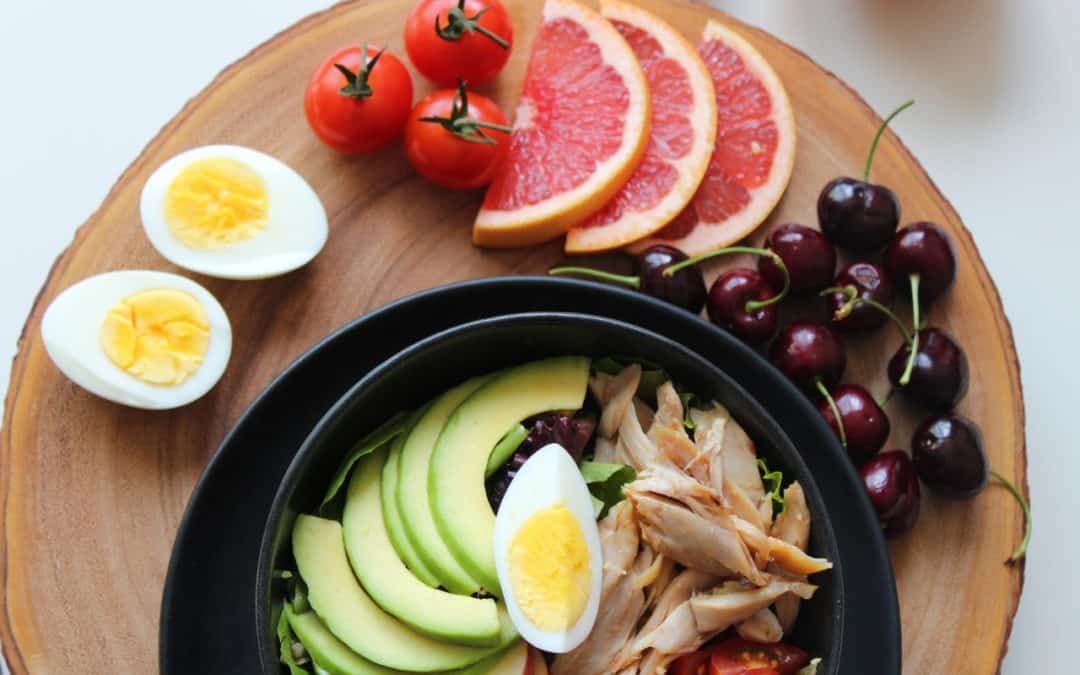Do you feel like you google search diets and the results are overwhelming? Which one is the healthiest? Which is right for my kids or for my body? Here is a breakdown of the current most popular diets in the order of my most preferred to least. Unfortunately, there is no one recommended diet for all…we are all unique, so it’s not surprising we may need different diets. Overall, I’m always a fan of a balanced diet if tolerated. However, for those with digestive issues (or really any symptoms such as joint pain, fatigue, mood changes, brain fog, etc.) I love Paleo! It is good for a short term re-set diet or indefinitely. I’ll dive deeper into Paleo in a future article.
1.Balanced: This is my first recommendation when working with a family especially if they are not currently struggling with symptoms or disease. It is the easiest to implement and let’s face it, as busy families we need that! It also provides most of the nutrients you need for optimal health. This is not the old food pyramid that we were taught in elementary school with the largest content being grains. Rather, this a balance on your plate of vegetables, fruits, grains and proteins…each constituting 1/4 of your meal. A small amount of dairy is also beneficial if tolerated. Eating whole fruits and vegetables is recommended along with lean proteins and whole grains.
2. Paleo: This is my favorite diet for most types of digestive issues. Paleo focuses on an ancestral approach ( I think we can all agree, we don’t know exactly what our paleolithic ancestors truly ate, but I know they didn’t eat processed foods like we do today). Paleo loads your plate with meats, vegetables (trying to avoid corn, white potatoes, and legumes), fruits and nuts/seeds. Some people will include raw dairy if tolerated. Overall, paleo eliminates a lot of the foods that cause inflammation in our guts and thus why it’s one of my favorites.
3. Gluten-Free: This is my second favorite for digestive issues (or again really any symptoms) because it eliminates one of the most inflammatory foods yet isn’t as restrictive as Paleo. I especially like to start with this for kiddos suffering from digestive issues and then if we need to eliminate more we can. Let’s face it, most kids would go for a gluten free bread, but no bread at all is unheard of! My one caution with gluten free is that most processed gluten free foods are also high in sugar to help with the taste, so reading labels is key! Or you can make your own but really who has time for that?!
4. Mediterranean: I love this diet for those at risk for heart disease because of a strong family history, high cholesterol or other diseases. It focuses on vegetables, fruits, whole grains and plenty of good fats (aka unsaturated fats) from fish, olives, nuts, and seeds. It is much like Paleo but allows the whole grains.
5. Low FODMAP: This diet can work for short term digestive issues, but I’m not a fan for long term use because it doesn’t provide the good fibers needed to support your microbiome (the good bacteria in your gut). Basically this diet cuts down on carbs that aren’t absorbed well in our small intestines. These FODMAPS include some fruits, vegetables, legumes, grains and sweeteners. Unfortunately, there is no way of looking at a certain fruit or vegetable to know whether it is a FODMAP, so I refer people to a list or app.
6. Ketogenic: High in mostly fats and proteins with less than 50 grams of carbs/day (which is very minimal)…think mostly meats, dairy and low carb vegetables…no fruit or grains. This forces the body to start to breakdown fats and proteins for fuel termed as ketosis. This diet has been proven helpful for neurological conditions such as seizures, parkinsons, alzheimers and perhaps even for short term weight loss. However, the jury is still out on the long term safety.
The thing to remember with any diet is that they are not set in stone. Our bodies will be forever changing, and we may need to experiment from time to time based on how we feel. If you do well on a mostly paleo diet but come to tolerate dairy, well then of course add dairy in with moderation. If you eat Mediterranean but feel horrible when you have nuts then just eliminate the nuts. Frustrating as it might be, our bodies cannot be solved with a cookbook approach…one recipe will not give perfect health to everyone.
Feel like you need more than a 50 foot view and want to dive deeper into your diet? Please contact me for an appointment…I would love to help you pursue health. Become resilient, ever growing…MINT.


Recent Comments